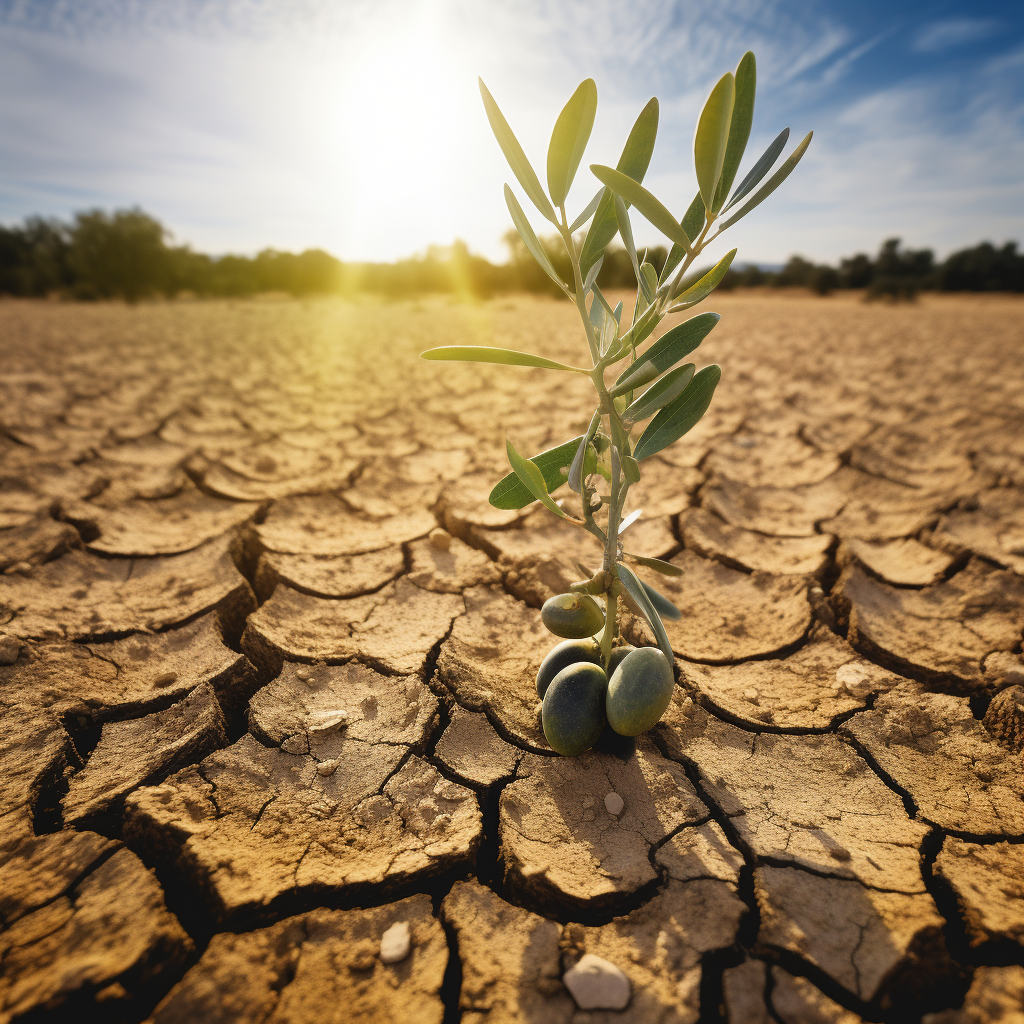December 27, 2023
Climate Change and Droughts in the Global Olive Oil Industry
Book a Demo
The global olive oil industry is grappling with significant challenges due to climate change and drought, which have led to a substantial 65% increase in prices. Mediterranean countries, the primary source of olive oil worldwide, providing a whopping 95%, are bearing the brunt of this crisis. They are experiencing poor harvest seasons, which have a tremendous impact on the overall production of olive oil.
The 2023 harvest has been particularly hard hit, receiving a low rating of 51 out of 100 in an annual survey by Oliveoiltimes.com. This rating is indicative of poor performance and a substantial decline in production quality. Moreover, global olive oil production is projected to decline for the second consecutive time in the 2023/24 crop year. This downward trend sets a discouraging record, marking the lowest total since the 2013/14 crop year.
Several factors are contributing to this steady decline in olive oil production. Climate change is at the forefront of these issues, creating unpredictable and unfavorable conditions for olive cultivation. Other challenges include consumer ignorance about the value of olive oil, labor difficulties, and conflicts in Europe and the Middle East, which disrupt the supply chain.
The International Monetary Fund’s tracking has thrown light on a steep increase in global olive oil prices. Countries like Greece, a significant contributor to the world’s olive oil supply, are feeling the pinch due to diminished crop yields and widespread theft.
Farmers and millers worldwide are navigating one of the most challenging harvests in recent history, with poor weather conditions wreaking havoc on olive flowers and consequently, production. This crisis underscores the vulnerability of the olive oil industry to changing environmental conditions and the urgent need for mitigation strategies.
In response to this crisis, industry insiders believe that enforcing standards to reduce fraud is a crucial first step. They also stress the need to lobby for increased sector-specific support from governments and relevant bodies. Additionally, the industry needs to invest in global marketing campaigns to promote olive oil consumption. These strategies could play a pivotal role in revitalizing the industry and ensuring its sustainability in the face of ongoing challenges.
The global olive oil industry is in the midst of a significant crisis that requires immediate and long-term solutions. Through a combination of enforced standards, increased support, and strategic marketing, there is hope that the industry can overcome these challenges and continue to thrive.
Science4Data is committed to cut through greenwashing and measure real impact. Join the journey to a sustainable future. Your actions matter.



